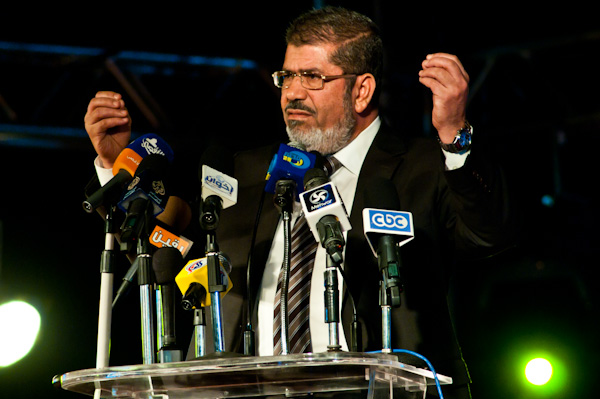
The apparent results of Egypt's first free presidential vote have left many of the young activists who led the country's 2011 uprising dismayed and despondent, facing deeply unpalatable options.
Unofficial results show Muslim Brotherhood candidate Mohamed Morsy set for a runoff against Ahmed Shafiq, the last prime minister to serve under ousted dictator Hosni Mubarak.
For the activists who helped overthrow the regime, many of whom seek a secular, civil state, having to choose between Mubarak holdover Shafiq and the Islamist Morsy feels like barely having a choice at all.
"It's the worst situation that anyone could have imagined, to be honest," activist Baho Bakhsh told AFP.
But Bakhsh and others are trying to move past their shock and disappointment and decide how to move forward.
They are unanimous in their rejection of Shafiq, who they see as the emblem of all they worked to overthrow.
"Definitely, I'm not voting for Ahmed Shafiq, he's a killer, he's a military man, he's oppressive," Bakhsh said.
But she acknowledges deep distrust of the Brotherhood, and would like to see them commit in writing to certain guarantees in exchange for her vote.
"Personal freedoms, things that have to do with Copts, like the right to build churches. Things that have to do with workers' rights," she said.
"I would want the right to protest, the right to go on strike."
The Brotherhood has already started reaching out to failed candidates including third-placed Nasserist Hamdeen Sabbahi and Islamist Abdel Moneim Abouel Fotouh, who left the organization to run for president.
Observers have speculated that the group could offer the vice presidency or the prime minister's office to Sabbahi or Abouel Fotouh, but Bakhsh said written guarantees were more important.
Activist Ahmed Zahran is unhappy about the prospect of a Morsy-Shafiq run-off but there's no doubt in his mind about who he'll vote for.
"Personally I would not even consider voting for Shafiq, for moral reasons," he says, while admitting in the same breath that "normally I wouldn't consider voting for the Muslim Brotherhood."
Under the circumstances, he'll cast a reluctant ballot for the Islamist group.
"I'm not afraid of the Brotherhood, I'm afraid of the people who are trying to return to the old regime, the old interests," he said.
Zahran would like to see the organization offer concessions, including guarantees that the committee charged with drafting the constitution would include liberals and people from a wide political spectrum.
He said he was also urging fellow activists to look at the bigger picture.
"The people who are panicking about the Brotherhood need to understand that the reality about the Brotherhood is that they only won 25 percent," he said.
"They will never be able to impose their kind of religious agenda now because they know that too many people will reject it."
Wael Khalil, 46, agreed that the Brotherhood ought to offer guarantees that would make it easier for liberals to back their candidate, particularly on the Constituent Assembly.
"Maybe they could give a clear indication of their legislative priorities, an indication that they would not touch personal freedoms," the veteran activist added.
Khalil dismissed Brotherhood outreach efforts so far as "PR" and admitted it would be impossible for activists to know whether the group would keep any promises it does make.
But he said that even if the group failed to offer any guarantees, he would still cast his ballot for Morsy.
"They'll still have my vote, but I don't think I'll be able to convince anyone that this is a vote for the revolution," he said.
All three agreed that boycotting the vote would only benefit Shafiq, and said they would advise people to vote for Morsy, however reluctantly.
But they acknowledged that many Egyptians are likely to back Shafiq, including some who think his law-and-order platform will bring stability and others who fear the Brotherhood's religious agenda.
"I thought at first … that everyone would vote for the Muslim Brotherhood against Shafiq, but now I find that is not the case," Khalil said.
"It's really a grave moment for the revolution."




